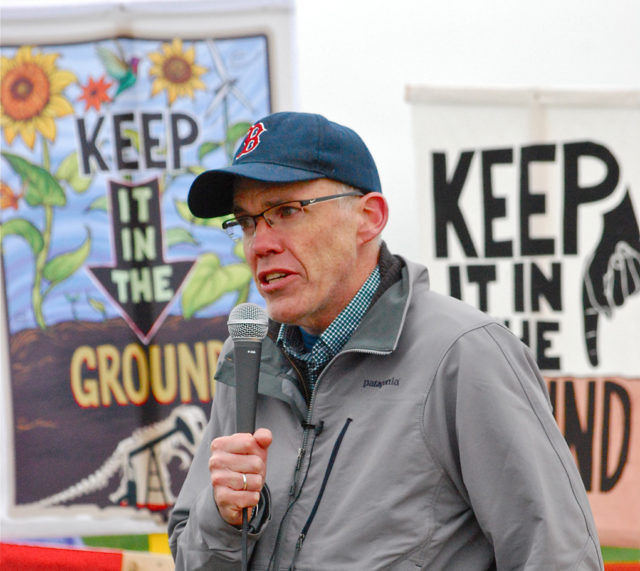
I’m not lucky enough to get to vote in the wonderful City of Boulder. But if I were, I know that I’d be voting YES on ballot initiative 2L to keep the movement going strong toward the municipalization of the utility.
This is a truly important task. It stands entirely to reason that Xcel Energy has been trying to get in the way of it with their usual blizzard of silliness. And I have no doubt that people in Boulder understand that now of all times — with the craziness in Washington — is the time when we have to stand up for things close to home and get the job done where we are.
This is a big step in the fight not only for giving Boulder effective control over an important commodity, but also in the fight against climate change and for a workable future for us all.
Most people by now understand that climate change is a deep problem. We are under attack from climate change, and our only hope is to mobilize on every front as we did in World War II. Climate change keeps unleashing a series of brilliant and overwhelming attacks. California’s wildfires are the worst in history. Suburban tracts look like Dresden after the bombing.
And this is a war in which winning slowly is just another way of losing. We need to pick up the pace.
Back in 1989, when I wrote the first book about climate change, we knew we were in trouble. What we didn’t know is how fast this was going to happen and how hard it was going to pinch. It is sobering to reflect on how much we have already changed our planet. This is already the biggest thing that human beings have ever done, and also the most unjust.
What is the damage likely to be in the years ahead if we keep doing what we are doing now? Even if all the nations of the world kept the promises that they made as part of the Paris Climate Accords, the promised actions are small enough and slow enough that the temperature would continue to rise something like 3.5 degrees Celsius in the lifetime of today’s college students. And if we indeed allow that to happen, we cannot have the civilizations that we are used to having. That is the bottom line.
Fortunately the possible pace of the future is very different. We have been given a great gift in the last decade. During that time, the price of a solar panel has fallen 80 percent. Around the world, in most places, wind energy is now the cheapest way we can produce electrons. That means that it would be possible to move far beyond the commitments of Paris. Mark Jacobson and his Solutions Project team at Stanford have produced plans that show how everything in the world — not just electricity but transportation, heating and cooling, and industrial processes — could be 80 percent renewably powered by 2030.
So we have a consensus on the science, and we have the technology. But the fight, as most fights are, is about money and about power. And the fossil fuel industry, the richest industry the world has ever seen, has had the money and power to continue the fight. Industry leaders’ hope has been to extend their business model for another two or three decades. And they are willing to do that at the cost of breaking the one planet we have. There has never been a corporate crime of that magnitude.
Our job now is to speed up the pace in our local communities, especially now that we have Donald Trump blocking change in Washington. It’s gratifying to see citizen action is springing up all over the world. We need to show that one man can’t block the actions that an entire planet requires, and Boulder is one of the places we can make that clear.
Bill McKibben is a Schumann Distinguished Scholar at Middlebury College.
This opinion column does not necessarily reflect the views of Boulder Weekly.














